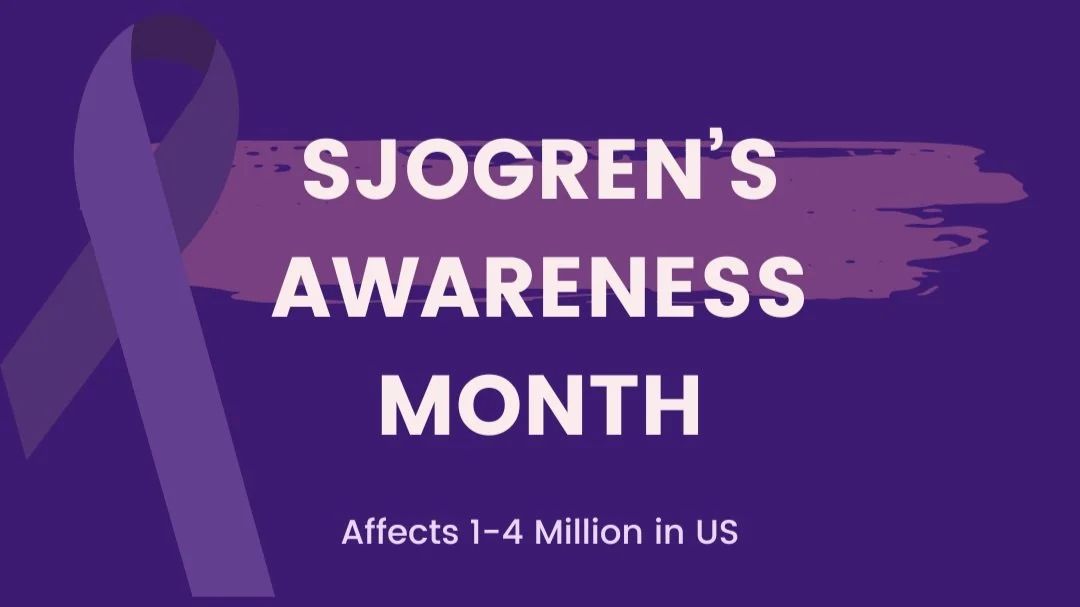Diagnostic Journey From Exhaustion to Health
The First Signs
My diagnostic journey began when I was 36. At the time, I had no symptoms other than constant constipation. This would be brought on by even the slightest change in what I ate. Even before I turned 36, it was not uncommon for me to feel constipated, since I always had a sensitive stomach.
After having my first child, I experienced severe constipation, which I was managing by adding more fiber to my diet, drinking tomato juice, and taking fiber pills when necessary. By the end of that year, I started noticing rough, dry patches of skin. I thought my skin was just dry because of the cold weather, so I didn’t give it much thought. Then, I lost a section of my eyebrow hair. I decided I just needed to increase my intake of vitamins. I figured that a simple lack of vitamins was the logical explanation for my symptoms.
Fighting fatigue and losing concentration
Over winter break, my daughter became very sick and had to be hospitalized. Even when she returned home, I had to be with her all the time, even when she went back to school. Thankfully, by the end of January my daughter was healthy again, but spring semester started and with teaching jobs at two different colleges, my two daughters’ school and gymnastics practices, and running an Arabic program, I was quite busy. I began experiencing difficulty multitasking, even with the most simple tasks. I attributed this to the stress I experienced during my daughter’s past sickness. and assumed that I was merely experiencing the effects of overload and burnout.
Every morning before taking my daughters to school, I would exercise on the stationary bike while my older daughter read a book out loud. Normally, I would explain words to her and correct her mistakes while I was on the bike. This was something I never had to devote much attention to. Then, one morning, it became so difficult for me to focus on what my young daughter was reading that I had to stop biking in order to follow along with her. This was strange to me. The book my daughter was reading was one I had read and listened to many times. It was nothing new or unfamiliar to me, but I wasn’t able to focus. I brushed it off as a one-time occurrence. But soon, it became more frequent. No matter how hard I tried to concentrate, I was no longer able to carry out both tasks as I once could.
I was also more easily fatigued. I was teaching night classes at one of my universities so that my husband could be home to watch the kids. One night, I had to drive home from class during a blizzard. I was particularly stressed because I was not accustomed to driving in bad weather conditions at night. When I got home, I was completely exhausted in a way that I had never felt before. When I told my husband, he attributed it to my teaching schedule and suggested that I reduce my teaching load. This sounded like a reasonable explanation, but I still couldn’t understand why I couldn’t push through it.
One Wednesday, after picking up my kids from school and bringing them to swim practice, I was washing the dishes. I started to feel like my hands wouldn’t move fast enough to wash the dishes. At that instant, I felt a tingling rush go through my body. This was the first time it crossed my mind that something might be wrong with my health. I had refused to accept that I would not be able to do what I had dreamt of and worked towards. I thought that if I couldn’t do it now, then I would never be able to continue my work as a professional, as a mother, and as a director for the Arabic program. I saw my exhaustion as a weakness, and felt that if I toughened up, I could get rid of it. It never occurred to me that my exhaustion was a health problem.
An unexpected diagnosis
The year I turned 39, my husband’s insurance began offering free checkups and I scheduled one. At the checkup, the doctor went through the physical examination. My blood pressure was on the low side, but my family has a history of low blood pressure. The doctor also did a standard blood test. I never thought my frequent exhaustion and difficulty multitasking were important enough to discuss with the doctor, so I did not bring it up. The doctor said she would call me if the blood tests showed anything unusual.
The next day, the doctor called and asked how I was feeling and if I felt something was wrong. I told her I was feeling fine, which was true at that moment. She then told me my thyroid stimulating hormone (TSH) levels were 27 uIU/L, seven times higher than normal. She told me I had Hashimoto’s thyroiditis, another name for autoimmune thyroiditis, which meant my thyroid had been attacked by my own immune system. My thyroid was not working and I needed to take a synthetic hormone. She prescribed a low dosage of the therapy and said that I would have to work my way up to the appropriate dosage.
Taking matters into my own hands
I think, like most people, I want to believe I am healthy and that diet and exercise can fix whatever might be wrong with me. So, in spite of the doctor’s recommendation, I believed I could revive my thyroid and boost its function on my own. I assumed that I just wasn’t taking enough vitamins. I began buying iodized salt, seaweed supplements, and anything over the counter that could boost my thyroid’s function. What I did not realize was that my body had attacked and damaged my thyroid gland beyond repair. I came to accept that my thyroid gland would never function properly and that the therapeutic hormone was the best alternative.
Treatment and Moving Forward
At the beginning of my treatment, my body didn’t respond to the low dosage of therapeutic hormone, so my doctor began to gradually increase the dosage. A few months later, my TSH levels were still high. My doctor said that my body was resisting, so she switched me to a different therapy. Six months into the new treatment, I began to feel better. I no longer had to push myself to complete normal tasks, and I slowly regained my ability to multitask. My energy levels were much higher.
My journey with Hashimoto’s began with constipation and continued to slowly progress. Before my diagnosis, it was easy for me to find a logical explanation for each of my symptoms. I never would have imagined that the dry, rough skin patches I was experiencing were linked to my difficulty with multitasking. It has been 13 years since I experienced my first symptom and 10 years since I was diagnosed. My thyroid never started to secrete hormones again, but I have accepted this and now view the hormone therapy as a way to help me move forward mentally and physically.












